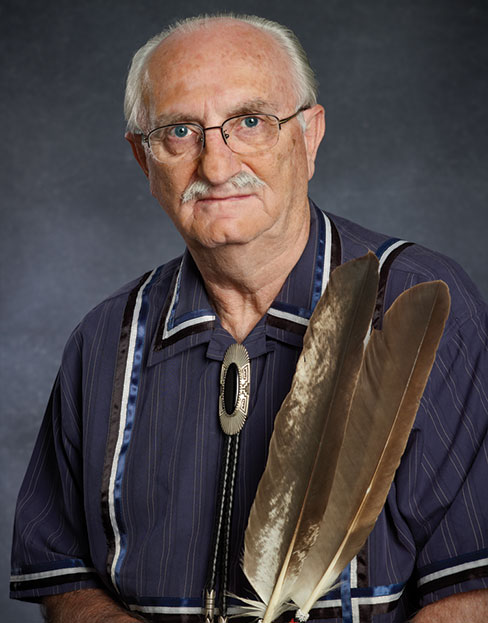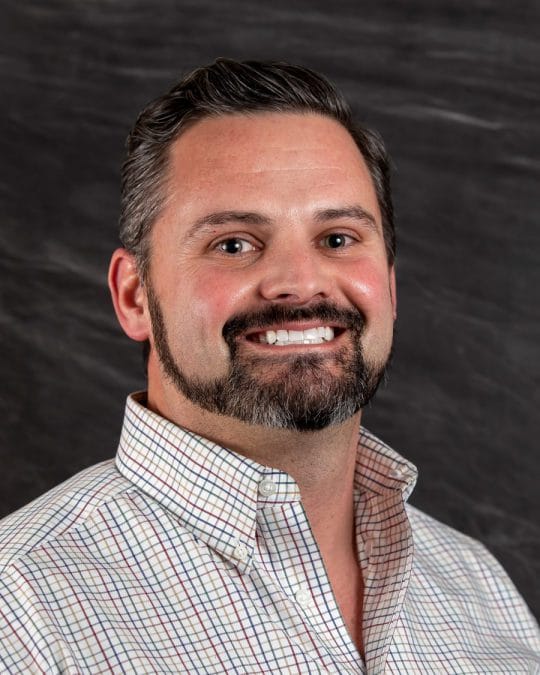In addition to the annual Tribal budget, Citizen Potawatomi voters will cast ballots for two races for Oklahoma’s at-large legislative seats this June. The Hownikan had Q&As with each candidate.
Paul Wesselhöft (incumbent)

How do you plan to include Tribal constituents’ voices in decision-making?
“Members often ask me questions about our government at our Family Festivals and gatherings. Every day I observe and dialogue with members on the three CPN Facebook groups. Members there are not shy posting their concerns about our government. I learn a lot from them addressing their concerns. Also, I invite members to contact me by email or Facebook. My emails are reppaul@gmail.com and paulwesselhoft@potawatomi.org My phone is 405-517-7148. My Facebook page is public for all to reach me. Please do!”
What would be the first two things you would set out to accomplish as a legislator, if elected?
“My highest priority has always been to increase the number and the dollar amount of member scholarships. Young people are our future! My second priority is to support the expansion of sound new enterprises. The more self-supportive we become, the less we must depend on federal government grants. I cherish our sovereignty and autonomy!”
Can you provide an example of a time you made a mistake and learned from it?
“Other than buying bad stocks, I ‘broadsided’ a fellow officer once by addressing his serious failure toward our troops with his commander. I was a young officer and I should have confronted him first face to face. I felt bad about that then and now. Lesson learned!”
What makes Citizen Potawatomi Nation unique to you?
“I have known that I was an Indian from early age. My grandmother told me that I was a ‘blue-eyed Indian.’ However, I did not cherish our culture until later in life. When I realized that we were going to be governed under a new constitution and I read that constitution, I realized that our Tribe, of all tribes, would have the only true national legislature, I was filled with pride. Our Nation is unique with a true national legislature. All other Tribal nation legislators are elected in state.”
How have you researched your Potawatomi heritage?
“I have researched my Potawatomi heritage historically and genealogically. I bought books on our history, which I know well. And I’m very proud of my great-great-great grandfather, Abraham Burnett, a chief, a government official and leader of our Tribe. He is my inspiration. My Indian name is Naganit meaning ‘Leader.’”
Do you have any ideas on how to increase voter participation in Tribal elections as a legislator?
“We legislators have often discussed this problem. We are frustrated that the voter turnout is low. I believe as our Nation grows and prospers, and our enterprises are even more successful, and our culture is celebrated in our museum and Family Festivals, our members will come to realize that they are an important and essential part of who we are as tribal Native Americans and desire to participate and vote in the decision making of our government and culture.”
What is a tribal or cultural issue you find important that you believe is lacking in current Citizen Potawatomi life?
“The greatest challenge we face is centralization. We need more decentralization. We, in fact, make our Tribal benefits and services available to our members in every state, but many of our services are only available in our Shawnee headquarters and Oklahoma. We legislators are always thinking of ways to extend our benefits and services to all members around the United States. This is very important to me!”
Jay Laughlin (challenger)

How do you plan to include Tribal constituents’ voices in decision-making?
“Communication is key. We need to have periodic district meetings within the state of Oklahoma at different locations as well as virtual town hall meetings to facilitate communication. At this same time, we’ll incorporate traditions, build bonds and make connections.
“To help make informed decisions, I will collaborate with our communications department to see how we can utilize technology to focus on issues and opportunities that receive the most attention from our citizens. Everyone’s voice needs to be heard and everyone has something to offer.
“I’ve worked with artificial intelligence before to help understand analytics and drive culture and collaboration. We can use this technology to help data mine key topics and ideas. This could start with a series of simple questions that our citizens answer electronically (via email or website). These replies would then be compiled to understand large scale key topics.”
What would be the first two things you would set out to accomplish as a legislator, if elected?
“As you’ve seen from ads and hopefully by visiting my website, my platform of candidacy is held up by the key initiatives of culture, economic prosperity, education, elders’ programs, the environment, healthcare services, tribal alliance and our youth. These initiatives were laid out from the beginning of my candidacy and this has not changed. These initiatives will continue to be in focus for every decision made and every opportunity sought on our Tribe’s behalf. Once elected as your District 9 Legislator, I will continue to focus on these initiatives.
“In order to promote these initiatives, the first two things I will set out to accomplish are developing teamwork and buy-in from the parties. I will work with the legislative branch, the executive branch, CPN staff, and our citizens to develop a team environment. We are in this together and buy-in towards the common goals must come from all parties.”
Can you provide an example of a time you made a mistake and learned from it?
“I’ve made a lot of mistakes and learned from all of them. Some mistakes took/take me a little longer to get the point. With each mistake comes an opportunity, and opportunity is what I want all of us to focus on. It’s perfectly okay to make mistakes and we shouldn’t fear making these mistakes. This is how we learn and grow. We must overcome the fear of making mistakes, so it doesn’t stifle creativity.
“I challenge you to feel the fear and understand it. I recently had an opportunity to work on a project that I felt was out of my comfort zone, I felt the fear. I started mentally talking myself out of it because it was difficult, because it was new. I started second guessing myself. I followed through, and even though the project wasn’t easy it was successful and brought new opportunities. Believe in yourself!”
What makes Citizen Potawatomi Nation unique to you?
“Being a citizen of the Citizen Potawatomi Nation has had numerous impacts on my life. The CPN has helped me with my education and living expenses when I needed it the most as well as given me an understanding of my cultural identity.
“One of our unique aspects, is even after multiple forced relocations and failed assimilation attempts, we have demonstrated that it is possible for a tribe to reassert control of tribal government and remove the ineffective, standardized governance structures created by outsiders. We have designed our constitution and legislature to represent all of our citizens even those outside Oklahoma. We have a 16-member tribal legislature. Five legislators are elected from within Oklahoma, eight legislators from districts outside of Oklahoma, and the remaining three positions are held by the executive officers of the Tribe. This strengthens our self-governance, economic prosperity, representation, and culture.”
How have you researched your Potawatomi heritage?
“Most of my research has come from our cultural heritage center and connecting with those at our family reunion festival. I still have a lot to learn.
“My lineage is traced back to Kesh-now-quah — Angelique (Afternoon Woman), the daughter of Potawatomi medicine man and leader Wabaunsee and wife to Pierre Navarre. Both my father and grandfather were born in Wanette, Oklahoma, where my family was resettled in the late 1860s. My great-grandmother Emily (Weddle) Laughlin is listed on the 1937 rolls, and her grandmother Frances (Navarre) Milot is listed on the 1887 rolls.”
Do you have any ideas on how to increase voter participation in Tribal elections as a legislator?
“Educating our citizens on current challenges and opportunities as well as making connections within our Tribe. It’s a challenge to make those personal connections when you’re several miles away. We must leverage technology, culture, communication, and offer incentives to promote these much-needed bonds.
“I really like the idea of voting in person during the annual family reunion festival; however, I know that’s not feasible for some. As such we offer absentee voting for those that can’t make it. I would like to take this a step further and offer an online voting platform. Not only could one vote online, but at the same time they would have the resources within the voting system to make their informed decision.
“Your vote matters. I am running for CPN Legislative District 9 to promote, protect, and foster our culture, economic prosperity, education, environment, elders’ programs, healthcare systems, tribal alliances and our youth.”
What is a tribal or cultural issue you find important that you believe is lacking in current Citizen Potawatomi life?
“Protecting and nurturing our culture, spiritual beliefs and historic values is a top priority. I will support programs and seek endeavors that enhance our culture through construction projects that include culturally significant symbols and writings to the enhancement of technology to celebrate our language. Our culture is part of everything we do.
“With construction projects, I would like to implement a plan to allocate a percentage of costs to be set aside for culture significance. A board would be established that would implement and review construction projects to ensure our history and culture are preserved. This could be through art, design and environment.
“We have an amazing language department with numerous resources to learn and get connected. I would like to work with the group and see how we can leverage platforms such as Duolingo and Babbel where one can learn on the go whenever they chose.”
